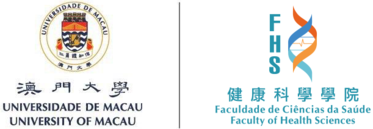聯絡信息

職稱
副教授
辦公室
(辦公室) E12-3026
/(實驗室) N22-4004a
電話
(辦公室) +853 8822 4908
/ (實驗室) +853 8822 2936
傳真
+853 8822 2314
諮詢時間
星期二、五 14:15 – 15:15
教學
研究團隊
| 名稱 | 職稱 | 辦公室 | 電話 | 電郵 |
|---|---|---|---|---|
| 高夕杰 | 博士生 |
| Education | |
| PhD | The Institute of Cancer Research, University of London, United Kingdom (2011) |
| MBiochem | Molecular and Cellular Biochemistry, St Peter’s College, University of Oxford, United Kingdom (2007) |
| Position | |
| 09/2017 – Present | Associate Professor, Faculty of Health Sciences, University of Macau |
| 2012 – 2017 | Cancer Research UK Additional Quota Fellow, London Research Institute / The Francis Crick Institute, London |
| 2011 – 2012 | Postdoctoral Fellow, The Institute of Cancer Research, London |
| Research Interests |
| Histone deacetylase complexes (HDACs) have emerged as transcriptional co-repressors, which serve to drive post-translational modifications on histone tails and nucleosome integrity. Aberrant expression and mutations of HDAC genes have been associated with a broad range of pathological conditions in particular cancer and aging. The involvement of HDACs in various diseases has prompted the development of histone deacetylase inhibitors (HDIs). Since several classes of HDACs are responsible for a broad range of biological processes, the ultimate goal is to develop specific HDIs that target a particular type of HDAC with no off-target effect. Due to the uneven physiological response to HDIs, only a few HDIs have been approved by drug safety regulatory bodies such as FDA. Thus, it is of paramount importance to consider the distinct HDAC structures during the development of specific HDIs.
My laboratory aims to unveil the atomic structures of apo and nucleosome-bound HDACs using cryo-EM. Structures of these HDACs will enable the scientific community to design HDIs that target a single HDAC complex with little off-target effect, potentially by disrupting the specific interactions between HDACs and nucleosomes. |
| Representative Publications |
* co-first authorships # co-corresponding authorships |
| Awards | |
| 2012 | Cancer Research UK Additional Quota Fellowship, London Research Institute, London, United Kingdom |
| 2012 | Chairman’s Prize for Best PhD Student 2011, The Institute of Cancer Research, London, United Kingdom |
| Professional Activities | |
| 2021 – Present | Secretary-General of the Talent Development Committee, Macau SAR Government |
| 2020 – 2021 | Committee Member of the Talent Development Committee, Macau SAR Government |
| 2020 – Present | President of the Oxford and Cambridge Society of Macau (OCSM) |
| Grants | |
| 12/2023 – 10/2026 | Structural and functional studies of Sin3 histone deacetylase complex (FDCT-NSFC 0110/2023/AFJ) |
| 10/2021 – 10/2024 | Molecular mechanism of Vibrio parahaemolyticus RhsP toxin release and RhsPI immunity protein as a protection against gastroenteritis (FDCT 0032/2021/A1) |
| 10/2018 – 10/2021 | Structural studies of circadian clock and cell cycle coupling via the Timeless protein (FDCT 0009/2018/A1) |
| 01/2019 – 12/2021 | Structural studies of the cohesin ring opening mechanism (MYRG2018-00221-FHS) |

